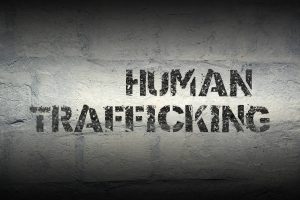A Pike County death penalty case brought by Fayette County District Attorney Scott Ballard has drawn national headlines and an effort to appeal the case to the U.S. Supreme Court.
The appeal centers on whether the state, by not allowing adequate funding for defense attorneys for Jamie Weis, is violating Weis’ right to a speedy trial.
Weis, who hails from West Virginia, is accused of the February 2006 robbery, beating and shooting death of Pike County senior citizen Catherine King in her Williamson home, according to the Pike County Journal-Reporter.
Mack Crawford, as chief of the Georgia Public Defenders Standards Council, testified in November 2007 that the council had no funds to pay further for Weis’ attorneys: Robert H. Citronberg and Thomas M. West.
At that juncture, prosecutor Ballard, who prosecutes felonies in the four-county Griffin Judicial Circuit that includes Fayette and Pike counties, suggested that the circuit’s Public Defender Office could be appointed to represent Weis, and presiding Superior Court Judge Johnnie L. Caldwell appointed the office to represent Weis to keep the trial moving.
Ballard at the time noted that several public defender attorneys had experience with death penalty cases and as such had the expertise to handle the case.
The removal of Weis’ original attorneys drew the attention of The New York Times, which last week took aim at the theory that District Attorney Ballard was able to pick his opponent in court.
The Times quoted former Georgia Supreme Court Chief Justice Norman S. Fletcher, who said the state has an obligation to pay for Weis’ defense because it is required by the Constitution.
Once Weis’ case was assigned to public defenders, Weis refused to cooperate with them, according to court filings. He did so on the advice of his pro-bono attorney Stephen Bright of the Southern Center for Human Rights, who is trying to get the original lawyers, Citronberg and West, reinstated to the case.
Bright noted that it took prosecutors six months from Weis’ arrest to file a notice of intent to seek the death penalty in the case. He also noted that the state’s funds for defense attorneys Citronberg and West ran out in September 2007, leaving the defense without funds for experts or investigators, much less for the attorneys’ work on the case.
In the meantime, attorneys for the Griffin Circuit’s Public Defender Office began working on the case until months later when they sought to be excused after Weis failed to cooperate with them.
Public defenders Joe Saia and Tammy Jacobs also based their request to be dismissed from the case based on their lack of funding for experts and investigation, along with the office’s lack of “time and expertise to conduct the extensive investigation that was necessary in the case.”
Attorney Bright noted that because Weis is from West Virginia, and that’s where his family is, much of the defense work must be done up there.
Crawford’s office later negotiated a maximum payment for the case of $225,000 that was agreed to in April 2008, but those funds were never made available, according to the appeal filing.
On July 8, 2009, Crawford appeared at a court hearing and agreed to pay $75,000 for defense counsel and $40,000 for investigation costs, with the trial slated to begin August 3, according to court records.
Pro bono Weis attorney Bright, in his argument to the Georgia Supreme Court, said that for 15 months in the case, no defense funds were expended at all while Weis remained in jail.
The Georgia Supreme Court, in a 4-3 split decision, ruled that Weis’ failure to cooperate with his new attorneys was significant enough that the state could not be to blame for the delay in trial.
The three dissenting Supreme Court Judges, in a dissenting opinion authored by Justice Hugh Thompson, said the state should be blamed for the delay on the case.
“… When the (Public Defender) Standards Council ultimately promised to provide funds to pay defense counsel and to hire an investigator, it did so on the event of trial and at a steep discount, leaving Weis with little time and no real ability to mount a defense.”
Thompson’s opinion blamed the appointment of the public defender’s office as being a delay attributable directly to prosecutors, and also blamed the lack of funding against the state since the Public Defender Standards Council is an “arm of the government.”
“The bottom line here is that the state should not be allowed to fully arm its prosecutors while it hamstrings the defense and blames defendant for any resultant delay,” Thompson wrote.
Chief Justice Carol Hunstein and Justice Robert Benham joined Thompson in support of his dissenting motion.
The matter may ultimately be considered by the U.S. Supreme Court. Meanwhile, the Weis case remains in limbo and his attorneys are hoping to have the indictment dismissed.











Leave a Comment
You must be logged in to post a comment.